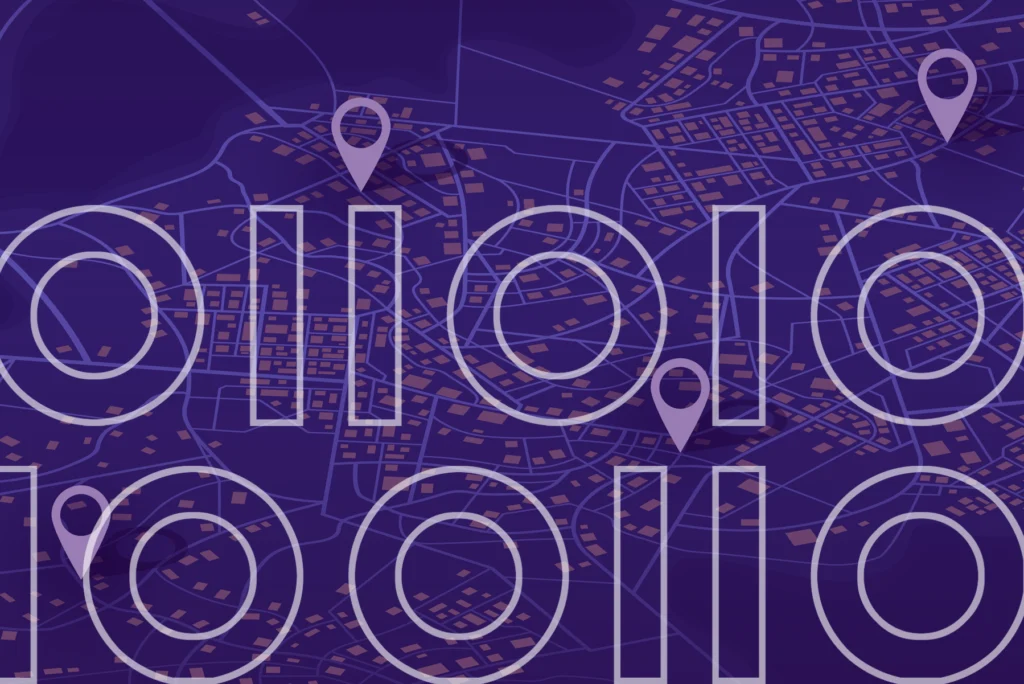Business process optimization is primarily about increased efficiency, but that efficiency must never come at the expense of non-negotiable factors such as security, regulatory compliance, and adequate system performance. The key, therefore, is to design processes that enable people to work smarter, not harder.
Location intelligence (LI) serves as an especially valuable focal point for data-centric business processes; it can go a long way toward helping to optimize those processes. LI supports data integrity, speeds system performance, and enables businesses to leverage the power of location for enhanced and actionable business insights. Location intelligence also links your existing information to thousands of additional data points, opening up a whole new world of dimension and context that can help you develop meaningful insights and drive business value.
Location’s Critical Role in Identifying Unique Entities
We’re all familiar with the problem of duplicate database records, especially in the systems that house customer information. There are 48,000 people in the United States with the name “John Smith.” How can you determine which of those are unique individuals, and which are duplicates?
One common approach is to look for certain fields that are likely to be unique, such as a postal address. If you don’t have the right tools, though, using that address as a unique identifier can be easier said than done. Street addresses are fairly complex by nature. A single street might go by different names, such as (“Amherst Street” and “Route 101A”). Abbreviations are common, making it necessary to decipher all possible variations and normalize them. There are so many different ways to write the same address; does the apartment number go before the street address, or at the end of the first line? Is it designated as a unit number, and apartment number, or just an unqualified number?

On occasion, the names of streets may be changed, or house numbering schemes might be altered. Buildings are demolished and new structures replace them. In the case of a new multi-unit dwelling, an entire range of new addresses might be created where there once there was a single building number.
The Value of a Unique and Persistent Identifier for Location
If this sounds confusing, that’s because it is. Resolving an address to its exact geographic coordinates is a challenge, but it’s not an insurmountable one. With the right technology and a well-curated database of addresses, even the most challenging examples can be deciphered and resolved.
Unfortunately, that still doesn’t solve some of the critical problems that are typically associated with location data. Imagine that you have multiple distinct systems that contain customer addresses. What if a customer’s address information across those two systems doesn’t match? Which one should you trust?
In fact, there is a deeper question here with respect to how data should be stored in the first place. Modern relational database design dictates that redundant information should not be stored in multiple places. It’s a waste of resources, and it often leads to confusion, such as the question above about which address is the right one.
Read the Whitepaper
Geo addressing: Bringing geocoding, address validation & data enrichment together
Read this whitepaper to learn more about how Precisely’s geo addressing capabilities can build trust in data for faster, more confident decisions.
Instead, relational database designers would assign a unique key value to each address, which could then be linked from any customer record in any system across the company’s IT landscape. Any location-specific information about that address, likewise, could be stored in a single location.
At Precisely, we assign a unique identifier to every postal address. We call this the PreciselyID. (Many people may know it by its former name, the PB Key). This creates a host of new benefits. First, it eliminates the possibility that your internal systems will assign the two internally generated keys when a single address is written in a slightly different way (thus creating a duplicate). Second, it provides a link between the address data you maintain internally and a vast amount of externally sourced data allowing a straight-forward approach to enriching your business data for analytics.
Opening Up a World of New Information
Precisely maintains curated data covering over 9,000 attributes for each location. You can enrich your existing data with information about demographics, geographical features, weather, crime statistics, natural and geopolitical boundaries, and more.
Geospatial intelligence can provide a retailer with insights about where their customers are coming from, what their interests are, and which nearby businesses they visit. Location intelligence can help any business to better understand the universe of potential customers within a particular market. Who is frequenting the neighborhood but not shopping at the retailer’s store? What are their other interests? What brings them to the area? How might you build awareness within that population and ultimately entice them to shop at your store?

Property and casualty insurers are using location intelligence to understand risk by examining the proximity of flammable vegetation, distance to the closest waterline, construction materials and build quality, and drivetimes from the nearest fire station, even taking into account the typical traffic patterns along the route.
There are thousands of use cases for location intelligence, but to access that wealth of location information, you need a single common point of connection between a specific address and the 9,000+ data points that describe it. The PreciselyID gives you that.
Additional Benefits of a Persistent and Unique Location ID
The use of the PreciselyID also facilitates better system performance. By looking up all location-based data using the globally unique identifier as an indexed field, database queries can operate significantly faster, yielding analytics and reports without unnecessary delay. Time-sensitive queries such as fraud detection algorithms can run at maximum speed.
To learn more about how Precisely’s geo addressing capabilities can build trust in data for faster, more confident decisions, read our whitepaper Geo addressing: Bringing geocoding, address validation & data enrichment together.







